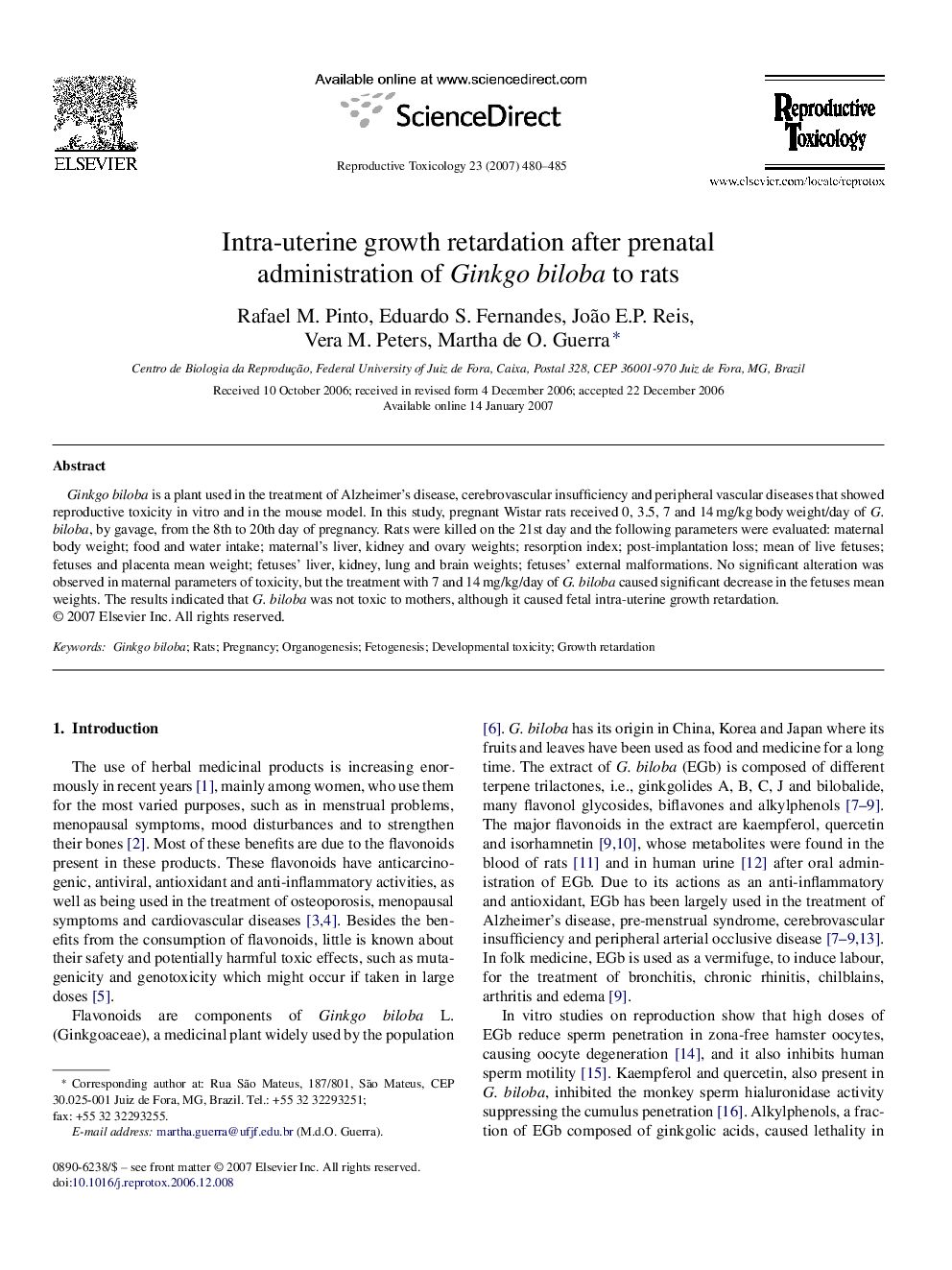| Article ID | Journal | Published Year | Pages | File Type |
|---|---|---|---|---|
| 2594572 | Reproductive Toxicology | 2007 | 6 Pages |
Ginkgo biloba is a plant used in the treatment of Alzheimer's disease, cerebrovascular insufficiency and peripheral vascular diseases that showed reproductive toxicity in vitro and in the mouse model. In this study, pregnant Wistar rats received 0, 3.5, 7 and 14 mg/kg body weight/day of G. biloba, by gavage, from the 8th to 20th day of pregnancy. Rats were killed on the 21st day and the following parameters were evaluated: maternal body weight; food and water intake; maternal's liver, kidney and ovary weights; resorption index; post-implantation loss; mean of live fetuses; fetuses and placenta mean weight; fetuses’ liver, kidney, lung and brain weights; fetuses’ external malformations. No significant alteration was observed in maternal parameters of toxicity, but the treatment with 7 and 14 mg/kg/day of G. biloba caused significant decrease in the fetuses mean weights. The results indicated that G. biloba was not toxic to mothers, although it caused fetal intra-uterine growth retardation.
